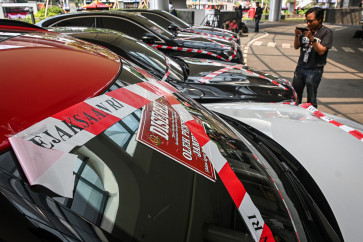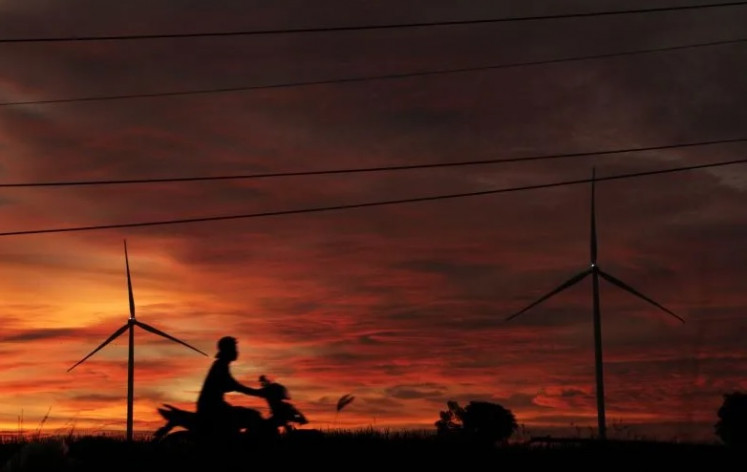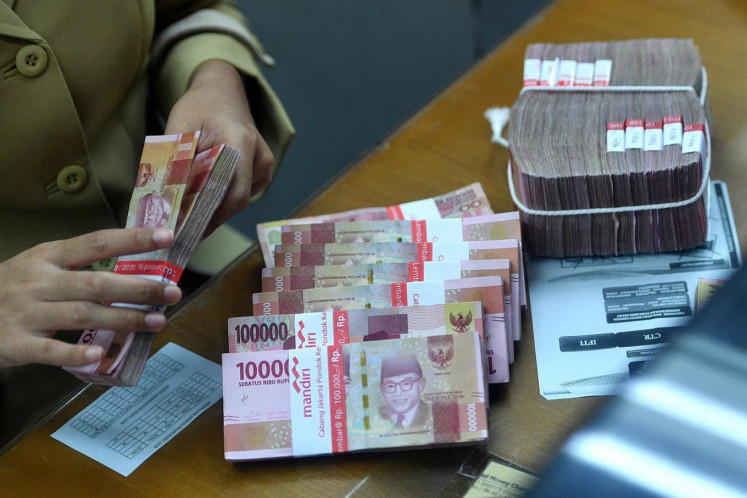Popular Reads
Top Results
Can't find what you're looking for?
View all search resultsPopular Reads
Top Results
Can't find what you're looking for?
View all search resultsGovt defensive over oil import pressure on balance of payments
The government has insisted that the fuel price increases have benefitted the economy, shrugging off Bank Indonesiaâs (BI) latest warning over surging oil imports that have put a strain on the balance of payments
Change text size
Gift Premium Articles
to Anyone
T
he government has insisted that the fuel price increases have benefitted the economy, shrugging off Bank Indonesia's (BI) latest warning over surging oil imports that have put a strain on the balance of payments.
Fuel price increases in June had a 'quite decent' impact on reining in the consumption of subsidized fuel and limiting oil imports, said Finance Ministry director general for budgeting Askolani.
Consumption of subsidized fuel would reach only 47 million kiloliters by the end of this year, below the government's initial estimate of 48 million kiloliters as stipulated in the revised 2013 State Budget, he said on Thursday.
'The fuel price increase has put the brakes on subsidized fuel consumption,' he told reporters at his Jakarta office. 'The pace of increase [in oil imports] decelerated after the fuel price adjustment.'
BI warned earlier this week of a deterioration in the country's external balance, which the central bank blamed on high fuel imports, which surprisingly showed an upward trend despite the fuel price adjustment.
Indonesia posted a US$2.6 billion deficit in its balance of payments in the third quarter of the year, thanks to a current account deficit of $8.4 billion, or 3.8 percent of gross domestic product (GDP).
A current account deficit could weaken aggregate demand and cause an economic slowdown, which together could lead to an increase in the unemployment rate.
A higher current account deficit could also cause the country's exchange rate to depreciate that would make overseas borrowings more expensive.
The oil-trade balance ' a component of the current account ' saw a $5.9 billion deficit in the third quarter, higher than the $5.3 billion deficit in the second quarter.
This showed that 'the price increase in subsidized fuel in June did not reduce consumption of subsidized fuel', BI stated in its report.
Separately, Finance Minister Chatib Basri quoted Central Statistics Agency data, saying crude oil imports were higher, not subsidized fuel, probably because of recent overhauls at local refineries.
He also estimated that by the end of this year, subsidized fuel consumption would be lower than the allocated 48 million kiloliters
'It will be the first time [subsidized fuel] consumption did not exceed its quota; so this shows an improvement,' he told reporters on Thursday at the State Palace.
Economists have frequently called on the government to curb its dependence on energy subsidies, which use up a large chunk of taxpayers' funds, and have suggested the government spend the money on more productive uses instead.
In the draft 2014 State Budget, the government earmarked Rp 210 trillion ($18 billion) for fuel subsidies ' around 12 percent of its total spending ' although the combination of a weak rupiah, rising oil prices and strong car sales might cause this figure to rise sharply.
'We are growing more cautious again on the oil-trade deficit,' Citi Research economist Helmi Arman wrote in a note.
'This must be closely monitored as motor vehicle sales have rebounded back to double digits in Sept. and Oct., supported by the recent tax breaks on small cars.'
BI spokesperson Difi Johansyah noted that another problem weighing on the oil-trade balance was oil production, which continued to show a declining trend while oil consumption remained high.
'If oil consumption continues to soar while production remains low, then our imports will stay high, ultimately leading to a deterioration in our current account deficit,' he said on Thursday.










